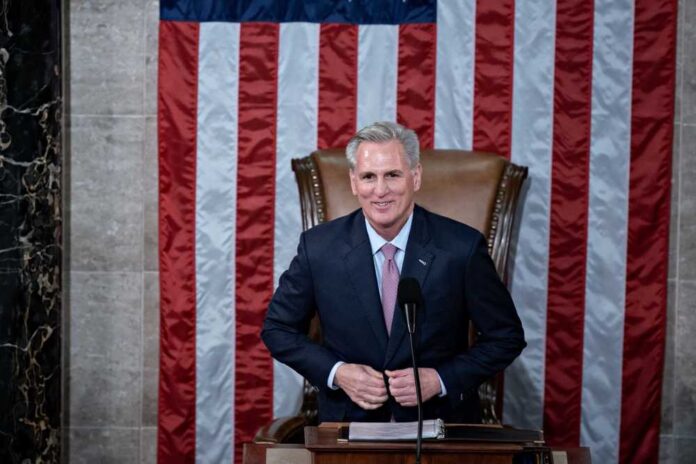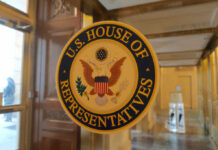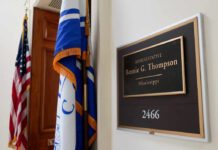
Following tense negotiations and 15 roll call votes, Rep. Kevin McCarthy (R-CA) finally received enough votes to become Speaker of the House after giving major concessions to a small group of Republican holdouts.
Those who opposed McCarthy’s speakership were mostly members of the House Freedom Caucus, who, like a significant number of conservative voters, did not want to see another establishment RINO in the speaker’s chair. Knowing that McCarthy had more than 200 lawmakers voting in his favor, the holdouts demanded concessions from the California congressman in exchange for their votes.
The concessions that McCarthy agreed to have increased the influence of some of the House’s most conservative members — including changes to how the chamber is run, placing members of the Freedom Caucus on key committees and the creation of a new committee to conduct a major investigation into the FBI.
The most prominent Republican holdout, Rep. Matt Gaetz (R-FL), spoke with the New York Post about the concessions.
“I feel like the American people won. I feel that the House of Representatives will be a healthier institution,” Gaetz said. “Many of these things had been resisted by Kevin McCarthy as early as Monday and now we have an exquisite rules package.”
Despite attacks from critics regarding their refusal to support McCarthy, the holdouts won in the end — as the newly-elected speaker has reportedly given in to many of their demands. As Freedom Caucus Chairman Rep. Scott Perry (R-PA) noted, the “juice was worth the squeeze.”
Several Republican lawmakers opposed to McCarthy’s speakership posted lists of the concessions on social media. These lists included bringing a vote to the House floor regarding a border security plan, a budget that does not allow an increase to the debt ceiling, a vote on term limits for Congress, legislation mandating single-subject bills and changing the rules to allow at least 72 hours given for lawmakers to read bills before voting.
McCarthy also reportedly agreed to allow for any member to introduce a motion to vacate the chair — which means that members can demand to hold a vote to remove the House Speaker from his position. The concessions also included creating an open amendment process for legislation, which would make it easier for lawmakers to change bills during the debate process.
The juice was worth the squeeze – we fought for and secured agreement on major reforms ending the unacceptable status quo in Washington. The path to restoring fiscal sanity, accountability, transparency, and prioritizing National Security in the People’s House is underway. 👇🏼👇🏼👇🏼 pic.twitter.com/xeuLaRcH2d
— RepScottPerry (@RepScottPerry) January 7, 2023
“Any power that limits the speaker’s power is a step in the right direction,” one Freedom Caucus staffer told the New York Post. “The Freedom Caucus is more relevant than ever, and McCarthy won’t be able to get anything done without our endorsement and support.”
Freedom Caucus members will also be placed on two of the most important committees in the House — the Rules Committee and the Appropriations Committee, which determine how the chamber functions and how funding is given out.
Another important concession was the guarantee that a Church-style committee would be created to investigate the FBI — specifically looking into the politicization and weaponization of the bureau. The Church Committee famously investigated and uncovered serious abuses by the CIA in the 1970s, including exposing the details of the MKULTRA program.
“With the rules agreement we negotiated, we will have a powerful Church-style committee to go after the weaponization of the federal government – the FBI, DOJ, DHS, and all the rest. This is a victory for the Constitutional rights of all Americans,” Rep. Dan Bishop (R-NC) tweeted.
With the rules agreement we negotiated, we will have a powerful Church-style committee to go after the weaponization of the federal government – the FBI, DOJ, DHS, and all the rest.
This is a victory for the Constitutional rights of all Americans.
I'm ready to get to work.
— Rep. Dan Bishop (@RepDanBishop) January 7, 2023
Center for Renewing America president Russ Vought, a former Trump administration official, celebrated these concessions — praising the Republican holdouts responsible for pressuring McCarthy into making the deal.
“This agreement would not be possible but for the early and immediate five members who defined the art of the possible by publicly declaring their opposition to Mr. McCarthy,” Vought said.
The House will hold a vote on the rules package on Monday, which will likely lead to another battle within the GOP. Rep. Tony Gonzalez (R-TX), who has been labeled as a moderate, has already vowed to vote against the rules package.




























